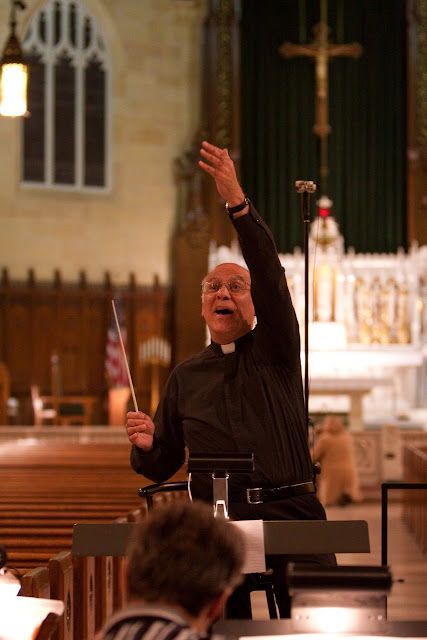This is audio of Fr. Perrone's homily from this past Sunday at the 9:30 AM Mass in the Extraordinary Form. I uploaded it to YouTube with a snapshot from a previous Sunday. My regrets that I have not taken time to set up a site for podcasts.
Grotto's pastor explains the importance of the forthcoming 40 Days of Lent and why we need it.
Please forgive the low quality as this was taken using an iPhone from the nave where it picked up echo, and a baby or two, and a few other noises.
If you listen to one part of this homily and not the entire thing, you might walk away with a different impression.
ASH WEDNESDAY AND LENTEN NOTES
This is probably a good time to mention some things coming up for Lent, starting with Ash Wednesday. There will only be two Masses, with ashes distributed at the beginning (so get there early!). The Masses are at 7:30 a.m. and 7:00 p.m.
During Lent, Grotto will have it's great Fish Fry (which usually includes an option for baked fish). In the past few years we have had talks in the gym towards the end of the dinner. This year, Brother Esteban will be doing these. I'll share a flyer on that in a moment.
The Fish Fry runs from 4:30 to 6:30 PM. The talk is at 6:00. Now, Mass is delayed on Fridays in Lent to allow people more time to honor the Eucharistic fast after dinner. So, the Stations of the Cross are done at 7:00 p.m., and Mass follows after.
Someone asked me today which Stations we use. In all the years I've gone, it's always been the classic St. Alphonsus Liguori version.
Someone also asked me about Ember Days during Lent. The 7:00 p.m. Mass on Mondays, Wednesdays, and Fridays, use the 1962 Missal (always subject to change and availability of a priest to celebrate that form). One can always count on Ember Day Masses at the morning, 7:30 a.m. Mass at Grotto. In any event, the spring Ember Days are the Friday and Saturday after Ash Wednesday. I believe this will be the case this Friday morning and evening, and at 7:30 on Saturday morning. You can always call the rectory to confirm.
Stay tuned to AssumptionGrotto.com for more news about Lent and various events coming up.
Here is the flyer.
COMMENTS ON THIS BLOG HAVE BEEN DISABLED INDEFINITELY.
For interesting news items I don't have time to blog on, check out my Twitter Feed: @TeDeumBlog
Te Deum Laudamus! Home
The obedient are not held captive by Holy Mother Church;
it is the disobedient who are held captive by the world!
- Diane M. Korzeniewski
it is the disobedient who are held captive by the world!
- Diane M. Korzeniewski
Note: The recommended links below are automatically generated by the tool, so they are not necessarily related content.


















